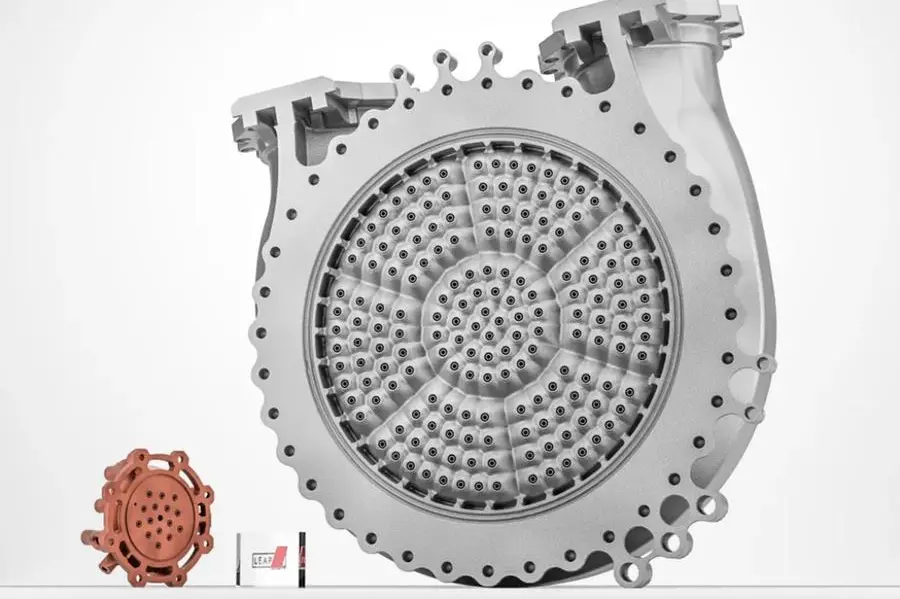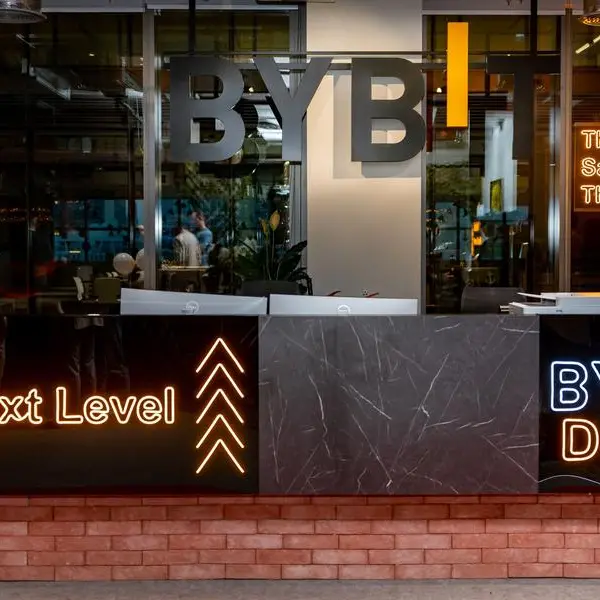PHOTO
Dubai, UAE — LEAP 71 has announced the next phase of its rocket engine program, scaling its computational engineering methodology to develop meganewton-class propulsion systems. Building on the successful validation of smaller-scale engines, the company is now advancing two reference designs: the Noyron XRA-2E5, a 200 kN aerospike engine, and the Noyron XRB-2E6, a 2000 kN bell-nozzle engine.
Both new reference rocket motors are conceived as complete propulsion systems, including the turbomachinery required to power them. At the core of this effort is Noyron, LEAP 71’s Large Computational Engineering Model, which encodes physics-informed logic to autonomously generate manufacturable hardware—without human intervention.
“The aerospike and bell-nozzle engines we are developing are not separate efforts—they are different phenotypes of the same computational DNA,” said Josefine Lissner, Managing Director of LEAP 71 and principal architect of the Noyron model. “This unified approach allows us to explore fundamentally different engine architectures without reinventing the wheel every time. It’s a systematic way of scaling complexity.”
LEAP 71’s methodology combines Computational Engineering with the latest advancements in industrial 3D printing. The recent maturation of very large-format metal Additive Manufacturing systems—with build volumes exceeding 1.5 m in all dimensions—has made it possible to directly produce complex, high-thrust engine components at full scale. This breakthrough enables radically reduced part counts, sometimes down to a single component, and eliminates the need for intricate multi-part assemblies, easing precision requirements and minimizing post-machining operations.
The company previously demonstrated this principle with its 5 kN aerospike engine, manufactured as a single monolithic piece of copper. The new reference designs push this approach dramatically further. Components such as the 600 mm-diameter injector head of the XRB-2E6 and its sea-level nozzle, requiring a build height of approximately 1.6 m, exemplify the scale and complexity now achievable.
“The hardest challenge remains translating a computational model into real, testable hardware,” said Lin Kayser, Co-Founder of LEAP 71. “Especially in turbomachinery, where sealing, material fatigue, and transient conditions during startup and shutdown are critical. These are not just design problems — they demand practical testing, iteration, and close collaboration with manufacturing partners.”
The program follows a phased, multi-year approach. Initial testing will focus on simpler configurations, such as gas generator cycles, establishing a robust foundation before scaling to more advanced systems.
While the ambition is long-term, the roadmap is concrete. LEAP 71 is targeting the first test campaign of the XRA-2E5 aerospike engine within 18 months, with the XRB-2E6 bell-nozzle engine, based on a full-flow staged combustion cycle, planned for readiness by 2029.
“This is a long journey, but the speed at which we can progress with computational engineering and modern manufacturing tools is encouraging,” added Lissner. “We believe this approach has the potential to change how propulsion systems are engineered and built.”
LEAP 71 is actively collaborating with Additive Manufacturing partners to qualify production processes for full-scale hardware. In parallel, the company is working with customers to translate the DNA of its reference designs into flight-ready propulsion systems for orbital missions.
About LEAP 71
LEAP 71 is a global technology company headquartered in Dubai, UAE, pioneering the emerging field of Computational Engineering. Using advanced software algorithms, the company autonomously designs complex physical products. At the core of LEAP 71’s work is Noyron, a Large Computational Engineering Model that enables the rapid generation of sophisticated machinery without manual drafting or CAD. Noyron has been described as “the first AI that builds machines.”
In 2024, LEAP 71 reached a major milestone by successfully test-firing multiple 3D-printed, liquid-fuel rocket engines designed entirely using Noyron—demonstrating the transformative potential of its approach.
In collaboration with global partners, the company is accelerating innovation across industries including aerospace, electric mobility, and thermal systems.
For more information, visit: https://leap71.com




















